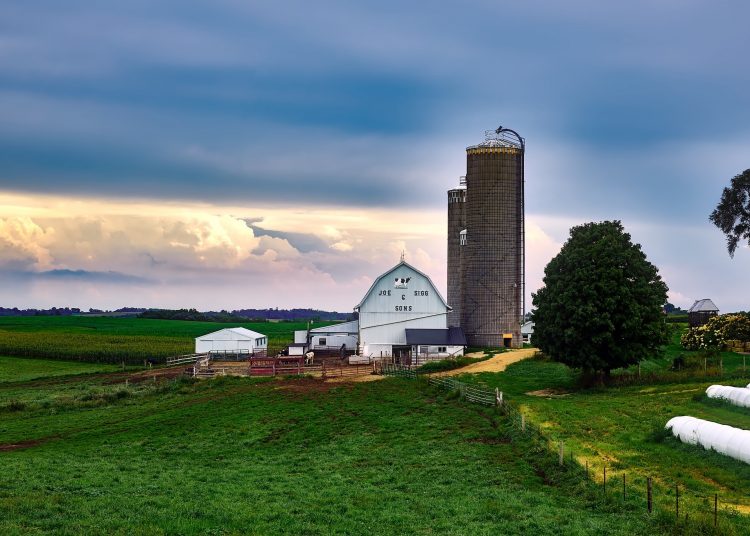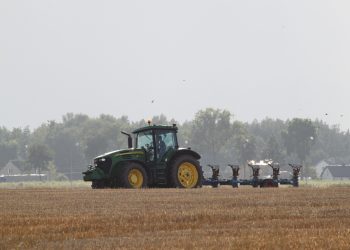As a lifelong family farmer and former chairman of the tax-writing Senate Finance Committee, I bring life experience to the policymaking table when lawmakers hammer out the nation’s tax policy. From capital gains to depreciation and individual income taxes that impact farming and manufacturing businesses in Iowa, I support tax policies that allow workers, farmers and employers to keep more of their hard-earned money to save, spend, invest and create jobs.
As a tireless champion for Rural America, I’m not afraid to lock horns with those pushing tax hikes that would be particularly detrimental to the family farm and take away the livelihoods and opportunity for the next generation to feed and fuel the world. Don’t forget, farms and ranches generate significant economic activity throughout the local community and surrounding region. I’m gearing up for a legislative battle over a tax policy known as step-up in basis.
Under current federal law, an asset’s basis is the starting point for calculating capital gains taxes. When an individual dies and passes on an asset, like a farm, to a family member, the basis of this asset is reset to the current fair market value, not the original purchasing price. This tax policy helps asset-rich, cash-poor farming operations keep the family business going from one generation to the next rather than having to sell it to pay an unaffordable tax bill.
For nearly two centuries, Iowa families have handed the reins of their farming operation to their children and grandchildren. When property is transferred from a deceased farmer to an heir, families use the stepped-up basis that “steps up” the current fair market value on the property to measure a capital gain and calculate tax liability. This step-up in basis reduces the capital gains tax liability on a farm passed down to the next generation because liability is based on the time of ownership of the heir, not throughout the ownership of the deceased. What’s more, under current law the heir does not owe capital gains tax if the property is not sold or is sold immediately upon transfer. However, if the property sold in the future, the capital gains tax liability would apply to the stepped-up basis.
Some Democratic lawmakers and the Biden administration want to change or eliminate the stepped-up basis provisions to help pay for massive government spending on their sweeping liberal agenda. Moreover, their proposal would generally tax any gain upon transfer to an heir rather than when the property is sold. This could result in some of the property having to be sold breaking up the family farm in order to pay the tax.
Iowans shared their concerns about this issue at my 24 county meetings in April. Family farmers from Charles City to Ocheyedan told me eliminating the step-up in basis would create a burdensome tax liability on sons and daughters trying to keep the farming operation afloat. It would also create compliance costs for family members to verify the original price of a property or document any capital improvements. In some cases, without records left by the deceased, tracking down this information to square up affairs with the IRS would be a daunting task and create a massive paperwork headache.
Confiscatory tax policies, such as the estate tax and eliminating stepped-up basis, would lower productivity and discourage capital investment and savings. They wouldn’t grow the economy or create jobs. Instead, raising inheritance taxes fits into a partisan ideology to redistribute wealth versus fostering economic freedom.
Just think, it would harm high investment operations, such as raising pigs, and century farms that have been in the family for generations. The Biden administration is trying to sell its tax plan to pay for its $2.3 trillion so-called “infrastructure” plan. I support infrastructure, but I’m not buying their sales pitch. Expanding Medicaid is not infrastructure. Iowans would say that’s buying a pig in a poke.
As a member of the Senate Finance Committee, I helped write the Tax Cuts and Jobs Act that expanded the federal estate tax exemption to $11.2 million per person and continued to index the threshold to inflation. On Jan. 1, 2026, it returns to $5 million per person, adjusted for inflation.
The Biden administration has its sights set on gutting the exemption. As the value of farm assets, including livestock and machinery, and cropland values rise from year to year, more farming and ranch operations risk exceeding the estate tax exemption. That puts the next generation at risk of liquidating assets or selling off the land to pay their estate tax liability. I’m working to eliminate the estate tax once and for all.
I’ve reintroduced bicameral, bipartisan legislation to permanently repeal the death tax. The estate tax is double taxation, pure and simple. It gives Uncle Sam a first, second, and third bite at the same apple that a taxpayer has already paid over his or her lifetime. In the halls of Congress, national reporters who ask me about the estate tax seem to hold the view that the estate tax only applies to the ultra-wealthy. This misguided notion reinforces my theory that Washington, D.C. is an island surrounded by reality. I tell reporters they need to tag along to one of my county meetings and hear from family farmers how the estate tax affects their livelihoods and way of life, hindering the chances to pass the farming operation down from one generation to the next.
According to the USDA, the Corn Belt has experienced tremendous growth in cropland values, exceeding 300 percent from 1997 to 2020. That’s a $5,000 jump per acre. Farming operations exist on low margins and pour nearly every penny into paying bills, expanding their herd, upgrading equipment, investing in conservation practices, and fulfilling tax obligations. Rather than sending even more taxes to the federal government, it would be better to allow family farms to keep this money so they can invest in their operations and rural communities. This would help grow the tax base and create economic vitality and new opportunities in their neck of the woods.
















